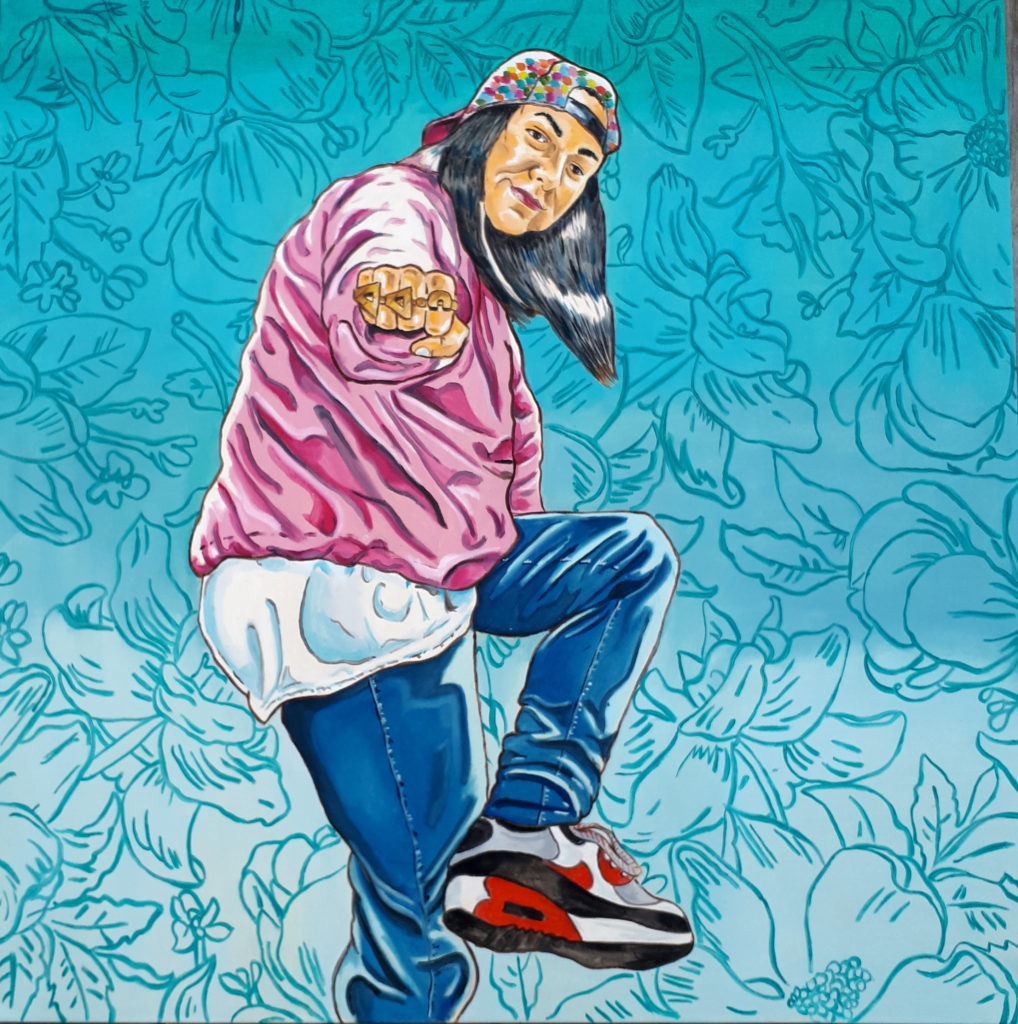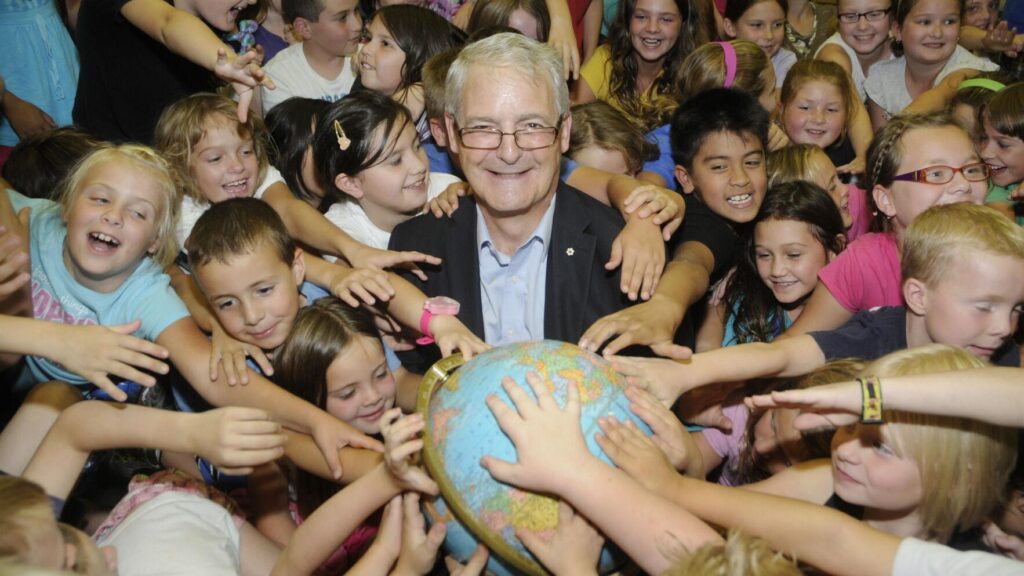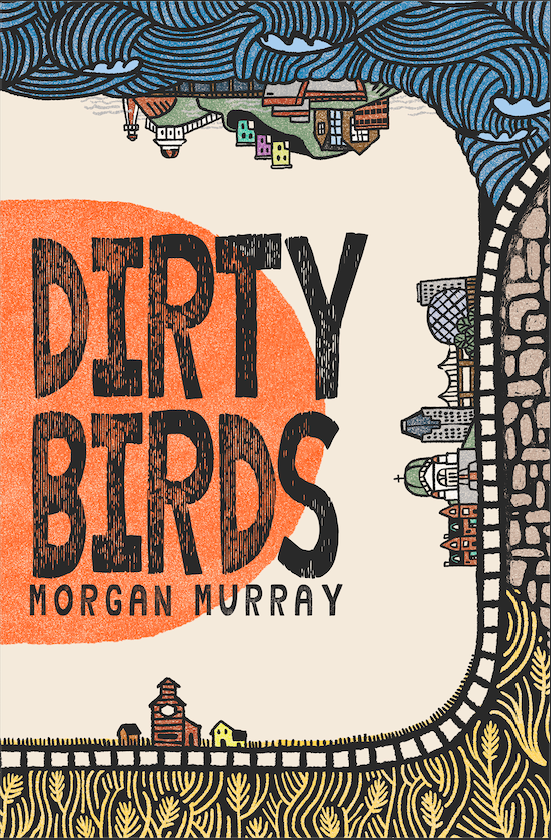Rick Mercer: Part 2: In show business, you should make it look easy
December 2021
And sometimes when you’re starting something like setting up that petition to get Stockwell Day to change his name, you’re opening a big door and you’re not really sure what’s behind it.
Oh sure, totally flying by the seat of your pants. Had not many people signed that petition we would probably have pretended it never happened. Oh well, on to the next thing. But that’s the exciting thing about TV too. Talking to Americans, that was a total afterthought. I went down with a very well thought out plan of what I was going to shoot in Washington, I would do a rant, and then I would do another sketch in front of the White House, and I ended up just talking to this guy, having this weird conversation of what he thought about Canada, and a whole really important part of 22 Minutes was born, and it was super exciting. Because it’s one thing to be on a hit show, but when you’re on a hit show and you have an endearing segment – it’s kind of like Bob and Doug McKenzie on SCTV, that was an afterthought, making fun of Canadian content, that they just banged together at the last minute, and no one involved with SCTV when that episode went to air thought oh those guys will become an integral part of the show going forward and those guys will have a Number One album. It just happened.
Did you find this memoir easy to write?
No, I wouldn’t say I found it easy, but I never like to talk about how hard the work is, because I always think, especially in show business, you should make it look easy. I was fortunate in that I had subject matter when I realized the stories were there. I didn’t have to reach for that. And there were parts of it I really liked writing and then it’s easy. It was such a big learning curve because it’s the biggest thing I’ve ever done; other than the Made in Canada sojourn it’s always been about keeping it to 90 seconds, keeping it to two minutes, the longest road segment on The Mercer Report was six minutes, so everything was all about short form. This is the first time I sat down and wrote anything long form really. I like what you said about context though, because context is really important, it defines everything.
Going back to Talking to Americans, so you ever wake up in the middle of the night in a cold sweat because former US President George Bush might be sending someone after you?
No. [laughs] No. When I did Talking to Americans, I took great solace in the fact that after I would interview these people I would walk away thinking oh well it’s ok they’ll never see this, there’s no way they could see this in a million years because it’s going to appear on the CBC once and only once and then it’s going to disappear into the ether. That was before YouTube. And now certain pieces – like if Mike Huckabee starts making noise about running for President [views of the interview with him] skyrocket up, and anytime people are talking about the Ivy League school system in the United States the Harvard stuff skyrockets up, but I’ve never been contacted by anyone that was in it, which was good.
Could you do it now? Could you go to a Trump rally?
There’s a guy who’s doing that. He’s very popular. I lost interest in doing it, it was a good joke but I felt it could easily become all I was known for, it was that big a deal, it was like riding the bronco, this exciting fun ride. But if I was ever going to write long form or have my own show I had to move past it, so I was happy to end it. It was also a very different time, people weren’t suspicious of the media or people with cameras the way they are now. But I wouldn’t just go to Trump rallies, because that’s why I went to Ivy League schools because I didn’t want it to appear like I was just searching for a certain type of person. I wanted to show that oh no it’s endemic in America, so we’re going to go to where the smartest people in America apparently are and see what they know. It would be too easy just to stick to the Trump rallies.
I just wonder if it would go too far beyond funny, unlike someone good naturedly wishing Canada congratulations on adopting the alphabetical order. It would be ugly.
Yeah, I have no interest in that. During the [2020] Presidential election someone wanted me to do that, and there was a time in my life when I would have crawled over broken glass to do it, but I had zero interest.
What are you going to do next? Would you do theatre?
Yes, there was a theatre project that I came very close to doing, it was a writing project, it’s not gone away, it just got postponed like every theatre project in the country for two years, it’s on the back burner. I am free now to do whatever it is I wanted to do. After The Mercer Report I wanted to do that stand-up tour, because when I toured the country first with Just For Laughs I was very much the host, I was the guy who came out and welcomed everyone and kept things moving and introduced these great comics. But I was in awe of these comics and I thought I’d like to do that someday. And after The Mercer Report I did go out on the road like that, but I went out as a comic just like everyone else on the bill and I had two 20-minute sets, and in order to do that I had to start from square one and in Toronto with my buddy that I was writing with we’d go out and do these open mic nights and there’d be 15 people in the audience and three of them are drunk and two of them would be not paying attention and you just do your eight minutes or your ten minutes and then leave and then you’d do it all again the next night in another room. And it didn’t make a lot of sense on paper that I would leave a national TV show because I wanted to go do stand-up around the country but I had the freedom to do it and that was great. Stand-ups are odd creatures. Many do it as an off ramp into something else. Letterman never did it again. Whereas Norm MacDonald would always do it. Those people would only ever feel normal when they’re onstage doing stand-up. Thankfully I don’t have that particular affliction. But it was great to have the opportunities to do something like that in my 50s.
What are you watching yourself?
On CBC Gem there’s a show called Sort Of that I think it’s one of the best things- the public broadcaster has done in decades. I think it’s tremendous and it gives me great faith in how relevant the CBC can be in going forward and I think it’s going to be adored all over the world. I can’t say enough about it. The pandemic made people think this is awful, but imagine how awful it would be if people weren’t creating television series and movies and recording albums and writing books.
Talking to Canadians is available from PenguinRandomhouse ($32.95)



